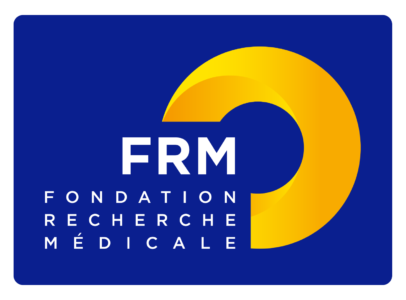The projects aim to better characterize at the cellular and molecular levels the correlates of immune-senescence and inflammaging; to pinpoint the pathways associated with specific immune alterations during biological aging.
Identification of a specific monocyte signature to predict macrophage pro-inflammatory / pro-resolutive status during frailty phenotype
 Inflammaging corresponds to a gradually augmenting inflammatory state associated with increased myelopoiesis in the bone marrow. This process increases the generation of mature and immature myeloid cells. Furthermore, aging is associated with delayed resolution of inflammation, reduced pro-resolving lipid mediators, and altered macrophage function. We hypothesized that the defect in pro-resolutive macrophages during aging depends on the modification of their differentiation and/or activation.
Inflammaging corresponds to a gradually augmenting inflammatory state associated with increased myelopoiesis in the bone marrow. This process increases the generation of mature and immature myeloid cells. Furthermore, aging is associated with delayed resolution of inflammation, reduced pro-resolving lipid mediators, and altered macrophage function. We hypothesized that the defect in pro-resolutive macrophages during aging depends on the modification of their differentiation and/or activation.
Principal investigators of this study:
Dr Béatrice Cousin – beatrice.cousin@inserm.fr & Dr Agnès Costes – agnes.coste@univ-tlse3.fr
Identification of targetable molecules causally involved in age-related immune cell defects
 T cell-mediated immune responses are compromised in aged individuals, leading to increased frequency and severity of infectious diseases and impaired responsiveness to vaccination. The activity of T cells is dependent on the T-cell antigen receptor (TCR), which detects with high sensitivity antigenic peptides associated with molecules of the major histocompatibility complex (MHC) at the surface of antigen presenting cells (APC). In this study, we propose to combine high throughput systemic approaches to systematically investigate the effect of aging on TCR signaling and immunological synapse formation both in human and mouse T cells.
T cell-mediated immune responses are compromised in aged individuals, leading to increased frequency and severity of infectious diseases and impaired responsiveness to vaccination. The activity of T cells is dependent on the T-cell antigen receptor (TCR), which detects with high sensitivity antigenic peptides associated with molecules of the major histocompatibility complex (MHC) at the surface of antigen presenting cells (APC). In this study, we propose to combine high throughput systemic approaches to systematically investigate the effect of aging on TCR signaling and immunological synapse formation both in human and mouse T cells.
Role of age-associated B cells in humoral immunity
 Our project is to study the role of age -associated B cells in germinal center responses and high-affinity antibody production.
Our project is to study the role of age -associated B cells in germinal center responses and high-affinity antibody production.
Functional characterization of dendritic cell functions in the course of aging
 The development of an immune response is regulated by complex interactions between dendritic cells (DC) and T cells. Distinct subsets of DC are distributed throughout the body and can be distinguished based on phenotypic markers, transcriptional programs, tissue distribution and function. Our hypothesis is that aging may modulate the network of tissue specific factors that instruct DC function during differentiation. Our project aims at characterizing this network to identify new targets to reprogram DC function in elderly.
The development of an immune response is regulated by complex interactions between dendritic cells (DC) and T cells. Distinct subsets of DC are distributed throughout the body and can be distinguished based on phenotypic markers, transcriptional programs, tissue distribution and function. Our hypothesis is that aging may modulate the network of tissue specific factors that instruct DC function during differentiation. Our project aims at characterizing this network to identify new targets to reprogram DC function in elderly.
Hepatitis E Virus genotype 3 infection in the elderly and immune response
 Aging is associated with increased susceptibility to infection with various pathogens including Hepatitis E virus genotype 3 (HEV-3). However, the outcome of HEV-3 infection differs among the elderly. To elucidate the mechanism underlying this pathogenesis, we propose to compare key features of peripheral CD8 T cells in infected patients (aged ≥60) with distinct clinical outcomes both at the acute and convalescence period of the infection.
Aging is associated with increased susceptibility to infection with various pathogens including Hepatitis E virus genotype 3 (HEV-3). However, the outcome of HEV-3 infection differs among the elderly. To elucidate the mechanism underlying this pathogenesis, we propose to compare key features of peripheral CD8 T cells in infected patients (aged ≥60) with distinct clinical outcomes both at the acute and convalescence period of the infection.
Behavioral assessment of the impact of aging, neurodegeneration and brain infections

 (Supported by the Fondation Recherche Médicale/France Alzheimer). This project will investigate how chronic infections of the central nervous system could contribute to the development and/or evolution of Alzheimer’s disease. We will study in an animal model, how the infestation by a parasite modulates the course of disease, both at the pathological and behavioral levels and we will investigate which immune cell populations may contribute to pathogenesis. These animal studies will be compared to our findings concerning human immune cell populations that we will have identified in the blood of “frail” patients, followed within the “COG-FRAIL” cohort. Our long-term goal will be to identify new predictive biomarkers for the severity and/or cognitive decline of the patients.
(Supported by the Fondation Recherche Médicale/France Alzheimer). This project will investigate how chronic infections of the central nervous system could contribute to the development and/or evolution of Alzheimer’s disease. We will study in an animal model, how the infestation by a parasite modulates the course of disease, both at the pathological and behavioral levels and we will investigate which immune cell populations may contribute to pathogenesis. These animal studies will be compared to our findings concerning human immune cell populations that we will have identified in the blood of “frail” patients, followed within the “COG-FRAIL” cohort. Our long-term goal will be to identify new predictive biomarkers for the severity and/or cognitive decline of the patients.





